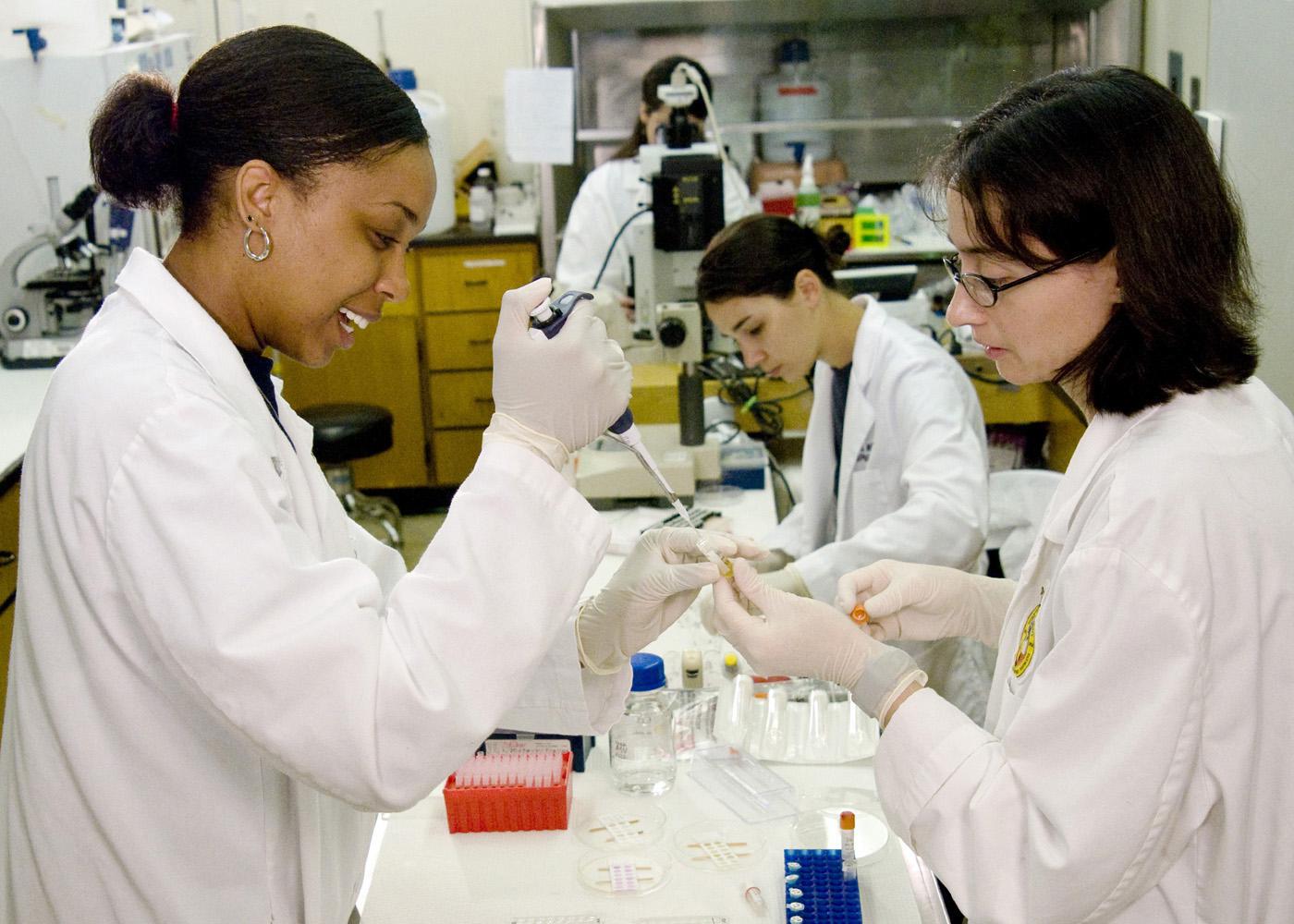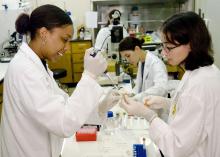Information Possibly Outdated
The information presented on this page was originally released on February 4, 2010. It may not be outdated, but please search our site for more current information. If you plan to quote or reference this information in a publication, please check with the Extension specialist or author before proceeding.
Minority mentoring program to encourage scientific pursuits
By Patti Drapala MSU
Ag Communications
MISSISSIPPI STATE – Mississippi State University is working to reach underserved communities through a new mentoring program that encourages minority students to pursue veterinary medicine and graduate degrees in the biological sciences.
MSU received a grant from the National Science Foundation to collaborate with three of the state’s historically black institutions of higher learning: Alcorn State University, Jackson State University and Tougaloo College. The enrollment, location and historical background of these institutions present an opportunity to recruit minority students for graduate programs.
“These institutions have outstanding undergraduate students who are highly motivated and the type of students we want to see in our veterinary and graduate programs,” said Dr. Stephen Pruett, head of the Department of Basic Sciences at MSU’s College of Veterinary Medicine.
Minority students showing an interest in science apply for the program during their sophomore year. To be considered for admission, students must have a grade point average of at least 3.0, demonstrate an aptitude for science in their coursework and submit a personal essay.
An admissions committee will select two students each from Alcorn State, Jackson State, and Tougaloo College, and four students from MSU. Students will receive a fellowship stipend, which will enable them to conduct research and complete their bachelor’s degree at the home institution.
A faculty mentor at the home institution will guide the projects and offer counsel and support. All 10 students will spend two summers at MSU working on joint projects and taking advanced courses.
“We need diversity in the fields of biological sciences and medicine so we can address problems more effectively,” Pruett said. “Professionals from different cultural backgrounds have unique insights, perspectives and experiences that broaden our knowledge of how and why things work.”
Statistics from the U.S. Census indicate that 93 percent of veterinarians are white. According to the Association of American Veterinary Medical Colleges, only 2.5 percent of the 2009 graduating class of veterinary students in the United States were black.
The U.S. population is estimated to be more than 305 million people. Whites make up 75 percent of the total population while blacks make up 12 percent. About 61 percent of Mississippi’s total population of more than 2.8 million people is white. Blacks make up 37 percent of the population in the state.
The mentoring program is one of many efforts being made to rectify a racial disparity in individuals who are veterinarians, researchers and scientists.
MSU assistant research professor Dr. Attila Karsi of the college’s Department of Basic Sciences said many minority undergraduates, most of whom are first-generation college students, have had little exposure to the excitement of research.
“They also may not know about career opportunities that will open for them if they pursue graduate degrees in biological or veterinary medical sciences,” Karsi said. “This program will prepare students to do that and make them enthusiastic about the future.”
The veterinary profession in the United States has remained relatively homogeneous for 25 years despite efforts by the Association of American Veterinary Medical Colleges to diversify enrollment. According to the association’s statistics, minority enrollments in U.S. veterinary colleges was 5.9 percent of total enrollment in 1981. By 2006, minority enrollment had only risen 4 percent.
MSU’s College of Veterinary Medicine has reached out to minority students by sending faculty to the state’s historically black institutions to present seminars on its veterinary medicine and advanced degree programs.
“We have brought in four minority students in the past two years and helped defray their expenses so they could gain work experience in the laboratory and our animal hospital,” Pruett said. “One student has already applied to our graduate program.”
With few role models in the profession, many black students shy away from veterinary medicine. One of the goals of the mentoring program is to change this situation.
“Students will receive the encouragement they need to develop a sense of community, a track record of academic performance and leadership skills,” Karsi said.
Representing the college on the project with Karsi is his colleague Dr. Mark Lawrence. Other participating MSU faculty are mentoring program coordinator Erdogan Memili of the Department of Animal and Dairy Sciences, Cetin Yuceer of the Department of Forestry, and Susan Bridges of the Department of Computer Science and Engineering.
Karsi said he expects students in the program to become leaders who will extend the frontiers of science and discovery. Many of these graduates will have the credentials to fill specialized positions in teaching, research and outreach.
“Progress is important if our nation is to meet the critical challenges of improving human health, ensuring food safety and meeting energy needs,” Karsi said.




